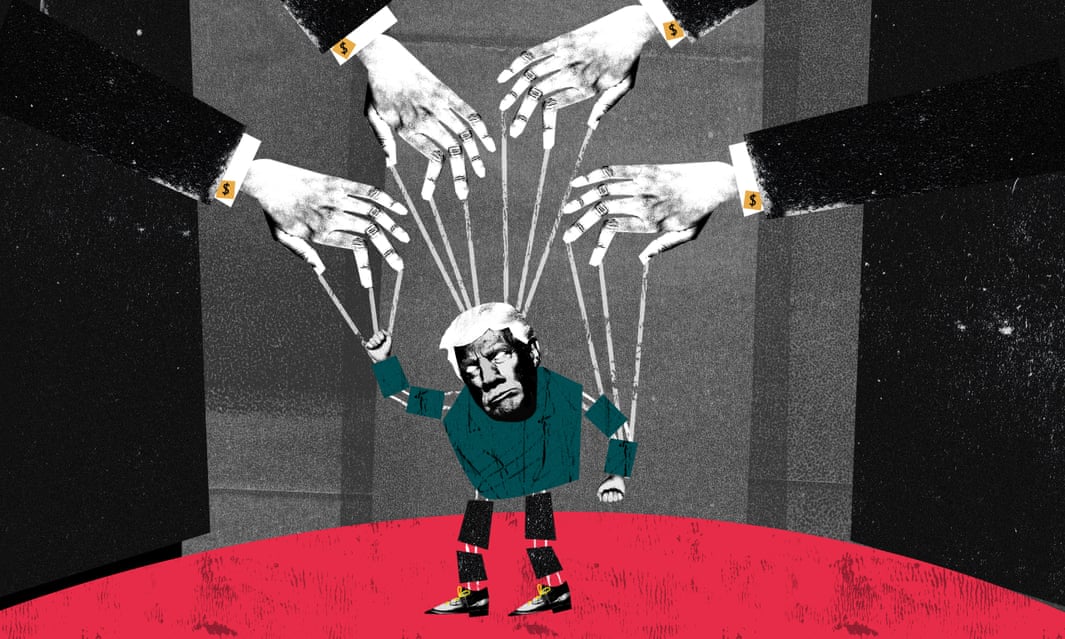It took corporate America a while to warm to Donald Trump. Some of his positions, especially on trade, horrified business leaders. Many of them favoured Ted Cruz or Scott Walker. But once he had secured the nomination, the big money began to recognise an unprecedented opportunity.
Trump was prepared not only to promote the cause of corporations in government, but to turn government into a kind of corporation, staffed and run by executives and lobbyists. His incoherence was not a liability but an opening: his agenda could be shaped. And the dark money network that some American corporations had already developed was perfectly positioned to shape it.
Dark money is the term used in the US for the undisclosed funding of organisations involved in political advocacy. Few people would see a tobacco company as a credible source on public health, or a coal company as a neutral commentator on climate change. To advance their political interests, such companies must pay others to speak on their behalf.
Soon after the Second World War, some of America’s richest people began setting up a network of thinktanks to promote their interests. These purport to offer dispassionate opinions on public affairs. But they are more like corporate lobbyists, working on behalf of those who founded and fund them. These are the organisations now running much of the Trump administration. (more...)

No comments:
Post a Comment